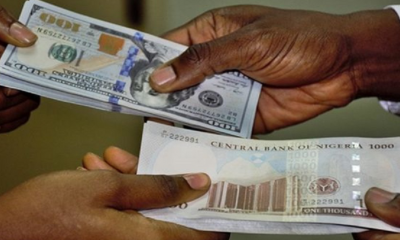The IBTC Purchasing Managers’ Index (PMI) report has revealed that companies mitigated the inflation driven by the removal of subsidies by passing the extra cost of the operation to customers.
According to the report, the impact of fuel subsidy removal on the cost of operations didn’t stop the increase in employment and new businesses in Nigeria as prices skyrocketed in response to the end of subsidies on fuel.
“While overall business conditions remained on a positive trajectory, firms faced a much stronger inflationary environment at the end of the second quarter of the year, linked to the removal of the fuel subsidy.
“Purchase prices increased at the fastest pace since last August, while the rate of selling price inflation accelerated sharply to the steepest in the year-to-date as firms passed higher costs on to their customers,” the PMI report reads.
READ ALSO:Nigeria projected to save over $5bn from fuel subsidy in 2023
The PMI further stated that the increased prices didn’t stop orders from rising, although marginally, leading to companies increasing employment modestly as well.
“Issues around the ending of the fuel subsidy also acted to limit the pace of output growth, according to respondents, although activity was still up markedly in the latest survey period.
“Output has now risen in each of the past three months amid higher customer numbers and growth of new orders. Wholesale & retail bucked the wider trend and posted a drop in activity. New business was also up for the third successive month.
“The rate of expansion was marked, albeit the softest in the current sequence of growth. Higher new orders encouraged firms to expand employment for the second month running, although the pace of job creation was again only modest,” the report noted.
Rating the business environment last month, the PMI said it scored the private sector 53.2, compared to 54.0 in May. Note that rating above 50.0 signals an improvement in business conditions in the previous month, while a rating below 50.0 shows a deterioration.
Despite the dip in the rating, the PMI said the reading signaled a solid monthly improvement in the health of Nigeria’s private sector.
Furthermore, the report disclosed: “Despite increasing staffing levels, firms recorded a build-up of backlogs of work, due to an expansion in new business and some difficulties securing inputs. Some companies reported having brought forward purchasing and expanded inventories ahead of predicted increases in the costs of materials in the months ahead.
Meanwhile, the PMI said business confidence dropped to the second-lowest on record in June and was only fractionally above last November’s nadir, but companies remained optimistic that output will increase over the coming year due to investment, business expansion plans, and proposed marketing drive.

 Latest4 days ago
Latest4 days ago
 Crime6 days ago
Crime6 days ago
 Agribusiness1 week ago
Agribusiness1 week ago
 Agribusiness5 days ago
Agribusiness5 days ago
 Business5 days ago
Business5 days ago
 Crime6 days ago
Crime6 days ago
 Business6 days ago
Business6 days ago
 Business6 days ago
Business6 days ago

